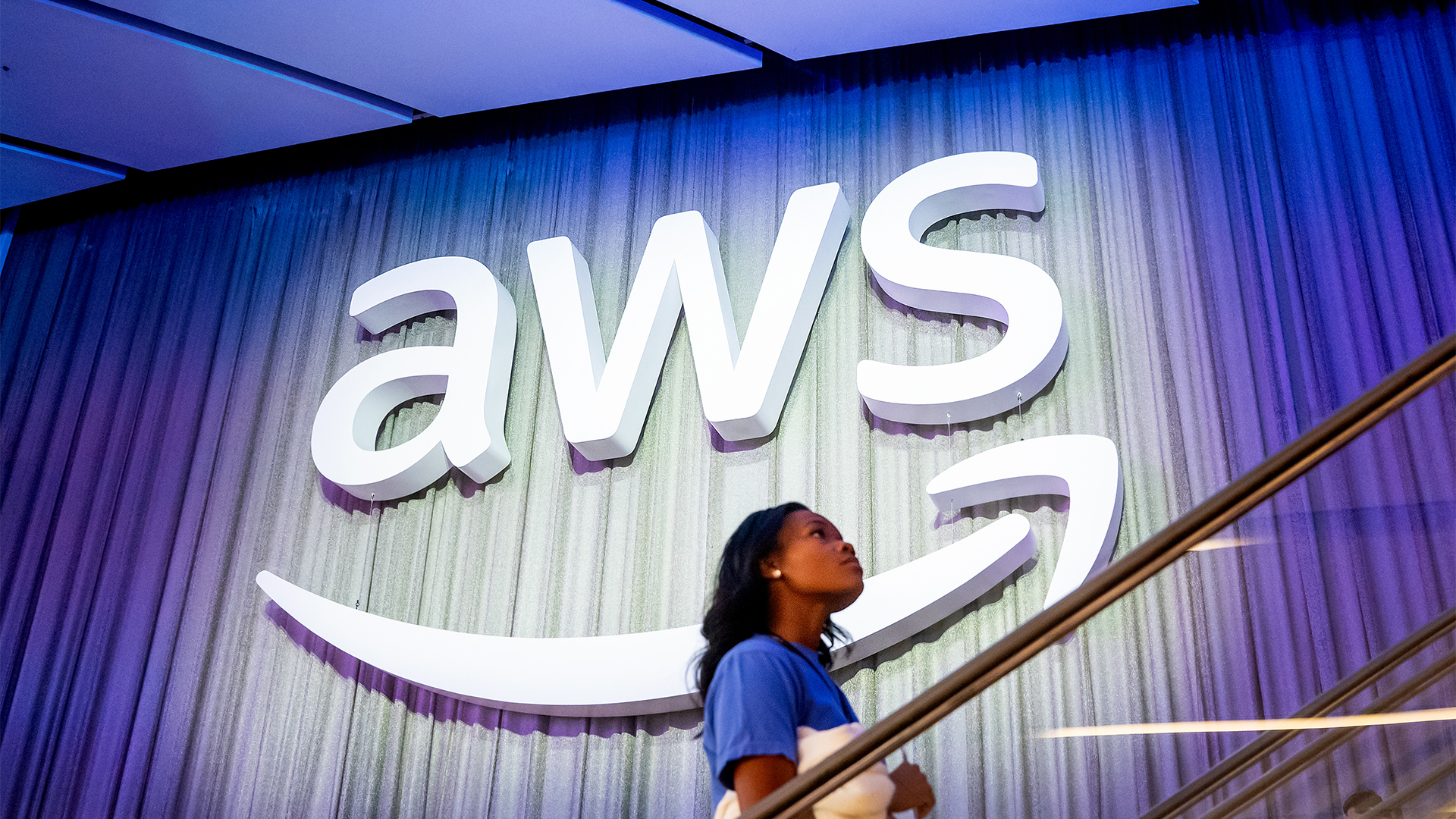84% of software developers are now using AI, but nearly half 'don't trust' the technology over accuracy concerns
AI coding tools are delivering benefits for developers, but they’re still worried about security and compliance


Software developers are using AI at record levels, new research shows, but they're hesitant to place too much faith in the technology.
Findings from Stack Overflow’s annual Developer Survey show the use of technology in the software industry has surged over the last 12 months, spurred on by the emergence of AI coding tools and, most recently, agentic AI solutions.
The survey found 84% of developers currently use - or plan to use - AI tools in their daily workflows. This marks a third consecutive yearly increase and a jump from 76% in last year’s edition.
OpenAI’s GPT model range was cited as the most frequently used by developers alongside Anthropic’s Claude Sonnet range and Google’s Gemini Flash models.
Yet despite the increasing uptake of AI tools in the profession, a growing number of developers aren’t willing to put their trust in the technology. Nearly half (46%) said they “don’t trust the accuracy” of the output from AI, which marks a significant increase compared to 31% in the 2024 survey.
Notably, even if AI improves to the extent that it can carry out tasks on behalf of developers, many said they would still prefer to ask a colleague for assistance.
Three-quarters (75.3%) said they simply don’t trust AI answers and would refer to a co-worker while 61.7% revealed they frequently have ethical or security-related concerns about AI-generated code.
Sign up today and you will receive a free copy of our Future Focus 2025 report - the leading guidance on AI, cybersecurity and other IT challenges as per 700+ senior executives
Crucially, 61.3% said they’d refer to a colleague for assistance because they want to fully understand their code.
Prashanth Chandrasekar, CEO of Stack Overflow, said the findings show that while the benefits of AI are becoming clearer, lingering concerns about security and safety still remain.
“The growing lack of trust in AI tools stood out to us as the key data point in this year's survey, especially given the increased pace of growth and adoption of these AI tools,” Chandrasekar said.
“AI is a powerful tool, but it has significant risks of misinformation or can lack complexity or relevance.”
Chandrasekar added that pursuing an approach that “leans heavily on trustworthy, responsible use of data from curated knowledge bases” is now critical.
Similarly, ensuring humans are kept in the loop is an equally important consideration for development teams.
“By providing a trusted human intelligence layer in the age of AI, we believe the tech enthusiasts of today can play a larger role in adding value to build the AI technologies and products of tomorrow.”
Developers are bogged down in buggy code
While trust in AI tools was a key issue highlighted by developers, growing frustration over poor quality output was also raised.
Nearly half (45%) of respondents said they’re bogged down in time-consuming debugging as a result of AI-generated code. The survey findings align with previous research highlighting concerns over AI code generation.
In a study from Cloudsmith, nearly half of developers using AI said their codebases are now largely AI-generated. While devs said the technology has enabled them to improve productivity and efficiency, the study warned that a concerning number of teams are overlooking crucial security considerations.
Around a third of developers don’t review AI-generated code before deployments, Cloudsmith found.
Agentic AI hasn’t hit the mainstream yet
Agentic AI has emerged as the latest trend in the AI space this year, yet while it’s taken the industry by storm, uptake of agentic solutions hasn’t yet taken off in the development community, according to Stack Overflow.
Only 31% of developers said they used AI agents in their daily workflows, while just 17% plan to use them. More than one-third (38%) said they don’t plan to use AI agents at all in the near future.
Notably, among those that have used AI agents, around 69% agreed they experienced a marked increase in productivity and efficiency.
A host of major industry players have jumped on the agentic AI bandwagon in recent months, with Salesforce in particular dialing in on the technology. Earlier this year, CEO Marc Benioff suggested the company might not hire any new software engineers as a result of its own internal successes with the technology.
With the emergence of this latest iteration of the technology, some industry stakeholders have suggested AI might negatively impact the workforce, particularly entry-level roles.
Stack Overflow’s survey shows developers aren’t concerned about the prospect of AI-related job cuts, however. Nearly two-thirds (64%) of respondents said they don’t perceive AI as a threat to their jobs, marking a decrease compared to the 2024 survey.
Make sure to follow ITPro on Google News to keep tabs on all our latest news, analysis, and reviews.
MORE FROM ITPRO
- AI coding tools are booming – and developers in this one country are by far the most frequent users
- Want developers to build secure software? You need to ditch these two programming languages
- AI tools aren’t helping developers save time on software testing

Ross Kelly is ITPro's News & Analysis Editor, responsible for leading the brand's news output and in-depth reporting on the latest stories from across the business technology landscape. Ross was previously a Staff Writer, during which time he developed a keen interest in cyber security, business leadership, and emerging technologies.
He graduated from Edinburgh Napier University in 2016 with a BA (Hons) in Journalism, and joined ITPro in 2022 after four years working in technology conference research.
For news pitches, you can contact Ross at ross.kelly@futurenet.com, or on Twitter and LinkedIn.
-
 What is Microsoft Maia?
What is Microsoft Maia?Explainer Microsoft's in-house chip is planned to a core aspect of Microsoft Copilot and future Azure AI offerings
-
 If Satya Nadella wants us to take AI seriously, let’s forget about mass adoption and start with a return on investment for those already using it
If Satya Nadella wants us to take AI seriously, let’s forget about mass adoption and start with a return on investment for those already using itOpinion If Satya Nadella wants us to take AI seriously, let's start with ROI for businesses
-
 UK government launches industry 'ambassadors' scheme to champion software security improvements
UK government launches industry 'ambassadors' scheme to champion software security improvementsNews The Software Security Ambassadors scheme aims to boost software supply chains by helping organizations implement the Software Security Code of Practice.
-
 So much for ‘trust but verify’: Nearly half of software developers don’t check AI-generated code – and 38% say it's because it takes longer than reviewing code produced by colleagues
So much for ‘trust but verify’: Nearly half of software developers don’t check AI-generated code – and 38% say it's because it takes longer than reviewing code produced by colleaguesNews A concerning number of developers are failing to check AI-generated code, exposing enterprises to huge security threats
-
 Microsoft is shaking up GitHub in preparation for a battle with AI coding rivals
Microsoft is shaking up GitHub in preparation for a battle with AI coding rivalsNews The tech giant is bracing itself for a looming battle in the AI coding space
-
 AI could truly transform software development in 2026 – but developer teams still face big challenges with adoption, security, and productivity
AI could truly transform software development in 2026 – but developer teams still face big challenges with adoption, security, and productivityAnalysis AI adoption is expected to continue transforming software development processes, but there are big challenges ahead
-
 ‘1 engineer, 1 month, 1 million lines of code’: Microsoft wants to replace C and C++ code with Rust by 2030 – but a senior engineer insists the company has no plans on using AI to rewrite Windows source code
‘1 engineer, 1 month, 1 million lines of code’: Microsoft wants to replace C and C++ code with Rust by 2030 – but a senior engineer insists the company has no plans on using AI to rewrite Windows source codeNews Windows won’t be rewritten in Rust using AI, according to a senior Microsoft engineer, but the company still has bold plans for embracing the popular programming language
-
 AI is creating more software flaws – and they're getting worse
AI is creating more software flaws – and they're getting worseNews A CodeRabbit study compared pull requests with AI and without, finding AI is fast but highly error prone
-
 AI doesn’t mean your developers are obsolete — if anything you’re probably going to need bigger teams
AI doesn’t mean your developers are obsolete — if anything you’re probably going to need bigger teamsAnalysis Software developers may be forgiven for worrying about their jobs in 2025, but the end result of AI adoption will probably be larger teams, not an onslaught of job cuts.
-
 AWS says ‘frontier agents’ are here – and they’re going to transform software development
AWS says ‘frontier agents’ are here – and they’re going to transform software developmentNews A new class of AI agents promises days of autonomous work and added safety checks